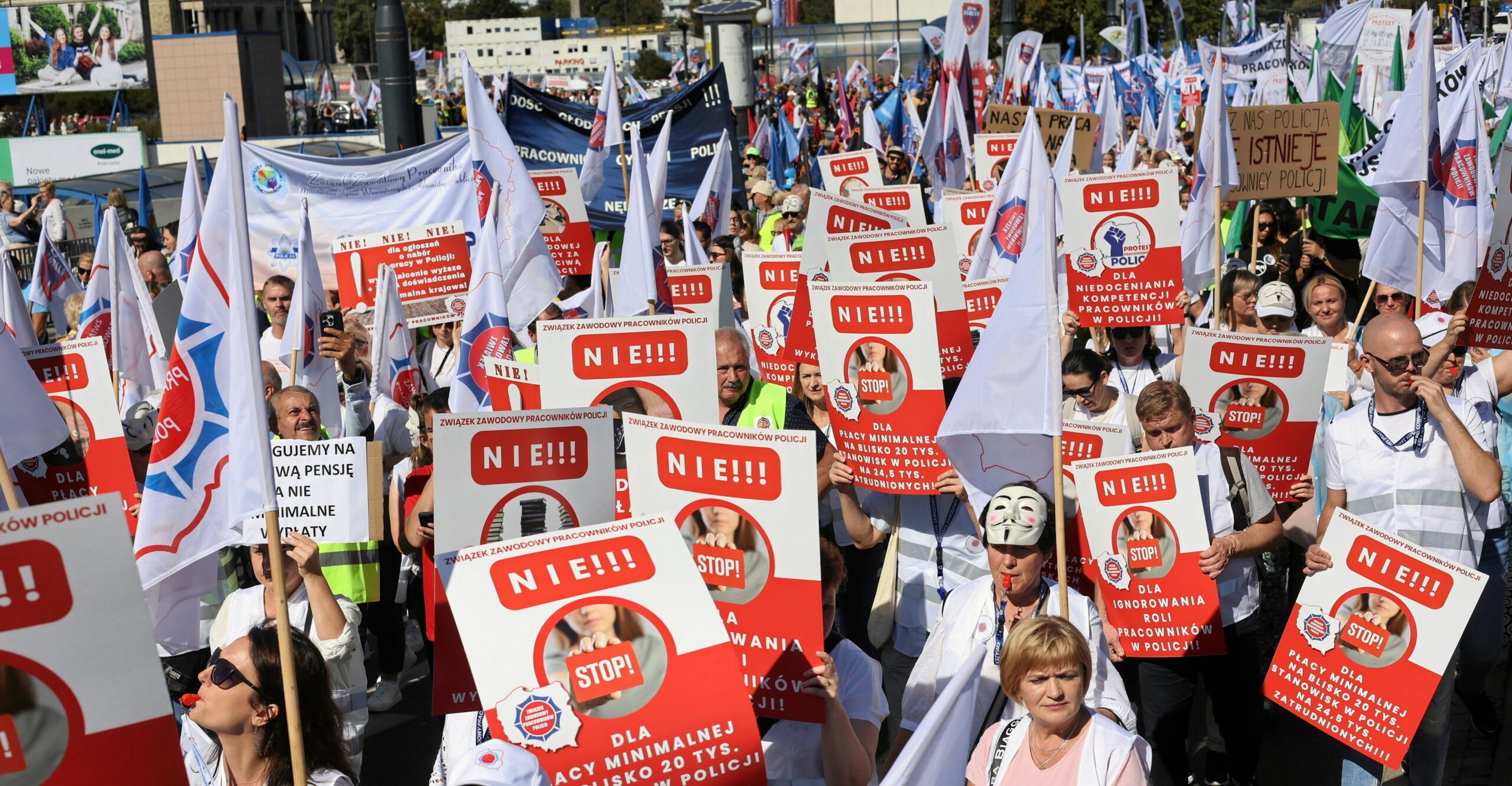Public sector workers hold “March of Rage” in Warsaw demanding pay rises

Thousands of public sector workers from around Poland have gathered for a “March of Rage” through Warsaw to the prime minister’s office in demand of pay increases. “Without us, the state wouldn’t exist,” read a banner at the head of the procession.
“Mr Prime Minister, this is the last chance to meet the legitimate demands of employees who serve the state and citizens on a daily basis,” declared the organisers beforehand. Elections are taking place next month at which the national-conservative ruling Law and Justice (PiS) party is standing for a third term.
Protest pracowników budżetówki #marszgniewu dotarł już pod @KancelariaSejmu pic.twitter.com/92CERvw15X
— Oktawia Kromer (@oktawia_kromer) September 15, 2023
Among those to take part in the protest were employees of the judicial and healthcare systems, police and fire services, customs, tax and post offices, and cultural institutions.
Their trade unions claim that, in the space of four years, cumulative inflation has reached 45% and the minimum wage has been raised 65%, but public sector salaries have only increased by 18%, reports the Rzeczpospolita daily.
“According to our estimates, one quarter of employees in the public sector receive remuneration at the level of the minimum wage, and next year, when [the minimum wage] will increase to 4,300 zloty [a month], it will be more than half of the employees,” say the unions.
The unions want 20% pay increases this year (backdated to July) and 25% from January next year, reports broadcaster TVN, which estimates that up to 10,000 people joined the march today. As well as protesting in Warsaw, many public sector employees also staged walkouts at work.
Poland’s government has announced plans for a record rise in the minimum wage next year, with the figure set to increase by over 23% between now and July 2024 https://t.co/S2PJi7oxEM
— Notes from Poland 🇵🇱 (@notesfrompoland) June 14, 2023
“I decided to come to the protest because, after 30 years of work, I earn less than 4,000 zloty (€862) a month, while the [minimum wage] from next year will be 4,200 zloty,” Dorota, an employee of the prosecutor’s office in Lublin, told the Gazeta Wyborcza daily.
“We were disregarded during the PO government, now PiS disregards us,” she added, referring to the current ruling party and the former one, the centrist Civic Platform (PO), which is now in opposition.
Ahead of next month’s elections, PO has promised 20% public-sector pay increases if it comes to power. The deputy leader of another centrist opposition party, Michał Kobosko of Poland 2050 (Polska 2050), attended today’s march and declared his group’s call for a 25% increase within two years.
Meanwhile, Robert Biedroń, one of the leaders of The Left (Lewica), another opposition group, today pledged a 20% salary increase immediately after coming to power followed by “a fair indexation system” that would continually increase public-sector wages.
Dlaczego jesteśmy na #MarszGniewu Bo to kompromitacja, gdy państwo zamiast być najlepszym pracodawcą – jest najgorszym. @PL_2050 popiera postulaty budżetówki. W naszym programie dla służby publicznej postulujemy 25-proc. wzrost płac w dwa lata. Ta praca musi być godnie opłacana. pic.twitter.com/R2qIJodWMd
— Michal Kobosko (@michalkobosko) September 15, 2023
Daniel Tilles is editor-in-chief of Notes from Poland. He has written on Polish affairs for a wide range of publications, including Foreign Policy, POLITICO Europe, EUobserver and Dziennik Gazeta Prawna.






